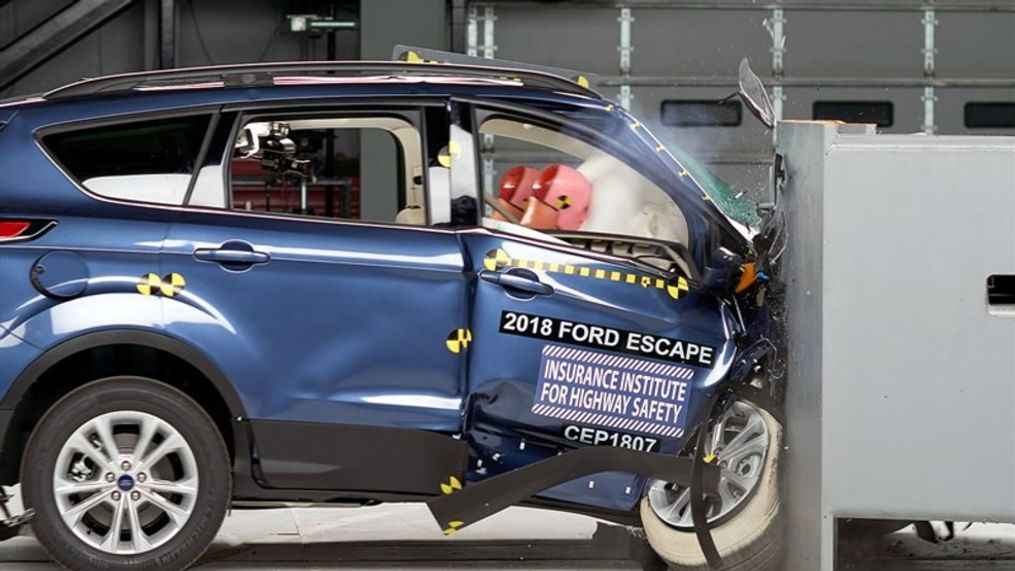Latest crossover SUV crash-tests reveal alarming discrepancy for passenger-side safety
The 2018 Ford Escape protects its driver fairly well in a crash, the IIHS revealed Wednesday. For a front-seat passenger? Not so much.
The IIHS' latest crash evaluations reveal a big difference in the way some compact crossover SUVs protect front seat passengers. In a passenger-side small-overlap test designed to replicate impact with another vehicle, a tree, or a utility pole, the Escape earned a "Poor" rating, while the 2018 Mitsubishi Outlander Sport scored "Marginal."
MORE: Some sedans may not protect passengers as well, either
Neither vehicle's passenger-side side-impact airbags deployed in the test as they should, either.
When the IIHS performed the same test on the driver's side of both vehicles, they earned "Good" and "Acceptable" scores, respectively, and their airbags deployed correctly.
“That’s not something we expect to see after so many years of crash testing,” IIHS senior research engineer Becky Mueller said in a statement. “Side curtain airbags should deploy in crashes like this.”
The IIHS pointed out that Ford modified the Escape after the 2016 model year to perform better in the small-overlap test. The automaker didn't add the same structural reinforcement to the crossover's passenger side.
Several other crossovers tested showed a weaker structure on the passenger's side than on the driver's side in results the IIHS released Wednesday, although none of the seven were as egregious as the Escape.
In its latest testing, the IIHS subjected the BMW X1, Chevrolet Equinox, GMC Terrain, Jeep Compass, and Mitsubishi Outlander to the same barrage of tests. All five earned "Good" overall results.
However, the IIHS noted that the Equinox and Terrain earned a "Good" rating for its driver-side safety structure but just "Acceptable" in the same measurements on the passenger's side.
To qualify for the IIHS' latest Top Safety Pick+ award, vehicles need to earn at least a "Good" or "Acceptable" rating in the passenger-side small-overlap test.
Read more from Internet Brands Automotive
- 2019 Jaguar I-Pace electric crossover (brief) first drive review: 4:34 to the future
- This is the first 2019 Chevy Corvette ZR1 to hit the dyno
- 8 things you should know about EPA plan to let cars emit more (cutting fuel economy as well)
- 2019 BMW X5 spy shots and video
- GMC boss says pickup trucks haven't hit the price ceiling yet




